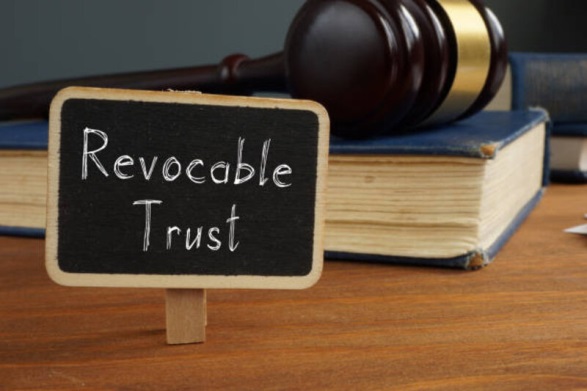Decoding the Revocable Trust: A Comprehensive Guide
Nov 29, 2023 By Triston Martin
Are you looking for clarity on revocable trusts? Do you need a better understanding of what they are and why they’re important? You’ve come to the right place! In this comprehensive guide, we have decoded the complex legal language that is often used when discussing trust structures. We will explain how creating a revocable trust can be advantageous to your estate plans, as well as outline the different types of assets you can add to a revocable trust. Furthermore, we provide guidelines around setting up your own trust documents in order to ensure that it meets all requirements and gets accepted by financial institutions. After reading through this post, you will have everything you need at your fingertips to create an effective and efficient trust structure tailored specifically towards optimizing your estate plan.
Definition of a revocable trust

A revocable trust, also known as a living trust, is a legal document that allows an individual to transfer assets into a trust while alive and manage them during their lifetime. The term 'revocable' means that the trust can be changed or terminated at any time by the grantor (the person creating the trust). This type of trust offers flexibility and control to the grantor, as they can make changes or revoke the trust if their circumstances or wishes change.
How Does It Work?
The grantor of a revocable trust must name a trustee, who is responsible for managing the assets within the trust. The grantor can also choose to be the initial trustee and manage their own assets in the trust. They have complete control over any changes made to the trust, including adding or removing assets and changing beneficiaries. This allows them to maintain full ownership and control over their assets during their lifetime.
Mechanics of a Revocable Trust
The creation process of a revocable trust
Creating a revocable trust involves drafting and signing a trust document, which outlines how the assets within the trust will be managed and distributed. This document must comply with state laws and include specific language to ensure its validity. It is recommended to seek professional legal advice when creating a revocable trust in order to ensure all legal requirements are met.
Funding a revocable trust
Funding a revocable trust involves transferring assets from the individual's name into the trust. This can include real estate, investments, bank accounts, and personal property. The grantor maintains control over these assets and can make changes or remove them from the trust at any time.
Details on the roles involved: settlor, trustee, and beneficiaries
The settlor, or grantor, is the individual who creates the trust and transfers assets into it. The trustee is responsible for managing the assets within the trust and following its guidelines. Beneficiaries are individuals named in the trust document who will receive assets from the trust upon the death of the grantor.
How to Set Up a Revocable Trust?
Setting up a revocable trust involves the following steps:
1. Determine your objectives
Before creating a revocable trust, it is important to determine your objectives and what you want to achieve with the trust. This will help guide the decisions made when setting up the trust.
2. Consult an attorney
It is recommended to consult an attorney who specializes in trust and estate planning to ensure all legal requirements are met and the trust document is valid.
3. Draft the trust document
The trust document should include details on assets, beneficiaries, trustees, and any specific instructions or guidelines for managing the assets.
4. Transfer assets into the trust
Once the trust document is signed and notarized, assets can be transferred into the trust. This is a crucial step in making the trust legally effective.
5. Review and update regularly
It is important to review and update the trust document regularly, especially when significant life changes occur or laws change that may affect the trust.
When to Consider a Revocable Trust?

A revocable trust may be considered in the following situations:
- To avoid probate: Assets held in a revocable trust do not have to go through the probate process, which can be lengthy and costly.
- To maintain privacy: Unlike a will, a revocable trust is not made public after death. This provides privacy for both the grantor and beneficiaries.
- To plan for incapacity: A revocable trust can include provisions for managing assets in the event of the grantor's incapacity or disability.
- To protect assets from creditors: Assets held in a revocable trust may be protected from potential creditors or legal claims.
Types of Assets To Include
A revocable trust can hold various types of assets, including real estate, bank accounts, investments, and personal property such as jewelry or art. It is essential to ensure that all assets are properly titled in the name of the trust in order for them to be included in the trust's protection. This means updating account names and titles to include the name of the trust.
The Benefits of a Revocable Trust
A revocable trust offers several benefits for estate planning, including:
- Flexibility and control over assets: The grantor maintains complete control over the trust and can make changes or revoke it at any time.
- Avoidance of probate: Assets held in a revocable trust do not have to go through the probate process, saving time and money.
- Privacy: A revocable trust is not made public after death, providing privacy for the grantor and beneficiaries.
- Incapacity planning: Provisions can be included in a revocable trust to manage assets in the event of incapacity or disability.
- Asset protection: Assets held in a revocable trust may be protected from creditors or legal claims.
Conclusion
A revocable trust can offer a flexible and customizable option for estate planning. It allows the grantor to maintain control over their assets during their lifetime while providing various benefits for managing and distributing those assets after death. When considering a revocable trust, it is important to consult with an experienced attorney and regularly review and update the trust document as needed. So, it is an effective way to protect one's assets and ensure that they are managed according to the grantor's wishes.








